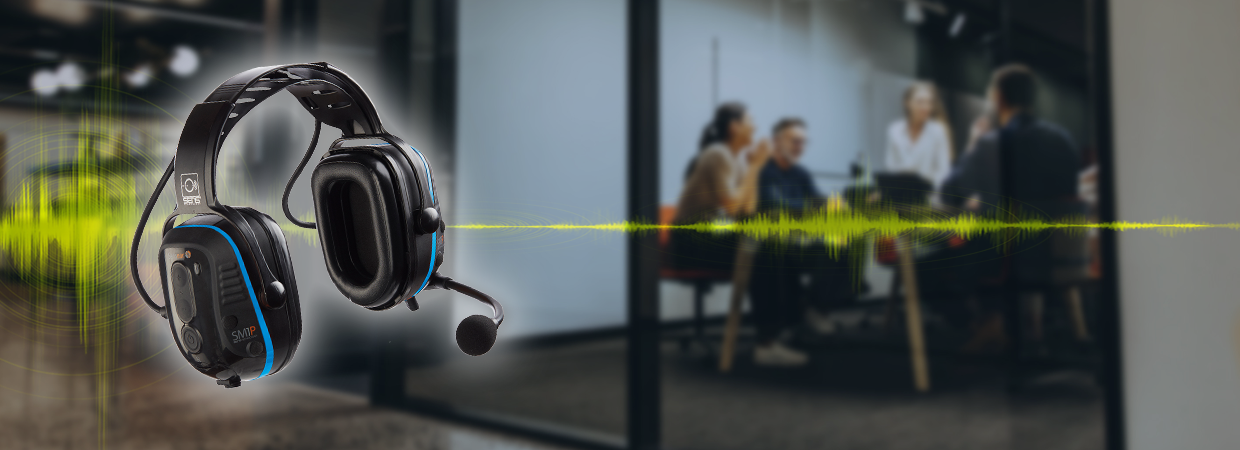- Home
- Blog
- Sensear Technology
- The Value of Digital Signal Processing

Those who are not often involved in the world of hearing protection may be unfamiliar with the term “digital signal processing.” Also known as DSP, digital signal processing is used by only elite headset companies to create a safe experience in unnaturally loud work environments. Those who are considering purchasing a headset may want to consider the importance of digital signal processing and how it impacts the effectiveness of overall performance in headset equipment.
What Is Digital Signal Processing?
DSP is often confused with actual digital systems. These two terms both allude to different concepts. Digital signal processing is slightly more abstract in nature than actual digital systems. A digital system is a hardware, binary code, or digital domain involved. The general confusion between these two terms may be because they are both so intertwined. DSP can be done on just about any digital platform out there, but some systems are specifically designed for DSP.
Digital signal processing, which is the focus here, can be defined quite simply as the processing of a signal in the digital domain to analyze, measure, and manipulate said signal using mathematical calculations. Digital signal processing involves the interchanging of information so that said information can be observed, analyzed, or transformed into a separate form of signal. As you can imagine, this takes place very quickly - the entire process is not even noticed by the user. However, digital signal processing is a critical element of a good headset.
Components of Digital Signal Processing
There are a handful of different “parts” that make up a successful DSP system:
- Input and Output - This is the interface to the physical world and other devices. In short, analog signals are converted to digital, processed, and then converted back to the analog domain to interact once again with headset users.
- DSP Chip - The “brain” of a DSP system. All of the necessary calculations and algorithms are performed here.
- Memory - This is where DSP algorithms are stored.
- Program Memory - Like any memory program, the program memory of a DSP stores the programs needed for data to be translated.
- Computer Engine - This is the part of DSP that computes all of the mathematical functions that take place during communication.
- Data Memory - Storage space for any information that may need to be processed.
Why Is Digital Signal Processing Important?
Digital signal processing is important because it significantly increases the overall value of hearing protection. Unlike passive protection, DSP suppresses noise without blocking the speech signal. Obviously, this is a very important aspect of protecting user hearing, especially when users are immersed in industrial work environments. DSP systems protect users from unhealthy noise exposure without compromising communication. Here are a few more reasons why DSP is valuable:
- Power - Real-world signals are converted into a domain where abstract scientific and mathematical models are then applied. The result is a powerful processing system.
- Information - Information can be used to enhance or improve desired aspects of a signal or even to reduce undesirable aspects.
- Adaptation - DSP processes information adaptively. This concept is imperative in a dynamic application such as sound and speech, especially when applied in industrial environments.
- Flexibility - DSP creates flexibility. Changes, updates, customizations, and many other features are available with the implementation of DSP systems.
- Efficiency - DSP allows users to get the job done efficiently, practically, and cost-effectively.
Where is Digital Signal Processing Used?
Digital signal processing is used everywhere. DSP is used primarily in areas of audio signal, speech processing, RADAR, seismology, audio, SONAR, voice recognition, and some financial signals. For example, digital signal processing is used for speech compression for mobile phones, as well as speech transmission for mobile phones. DSP is also used in elite headset equipment to protect users from hearing damage; the same suppression and enhancement concept is equally important here. Leading industries in the field of hearing protection and on-the-job communication such as Sensear use digital signal processing to create a safe, quality communication experience. Other applications include mp3 file manipulation, CAT scans, computer graphics, MRI, and even amplifiers for certain electric guitars.
The purpose of digital signal processing is, as mentioned before, to filter analog signals from current time and space. It is used in a wide variety of technological equipment but is an especially critical aspect of noise suppression and voice enhancement communication equipment. To learn more about the importance of digital signal processing, contact the experts at Sensear.







